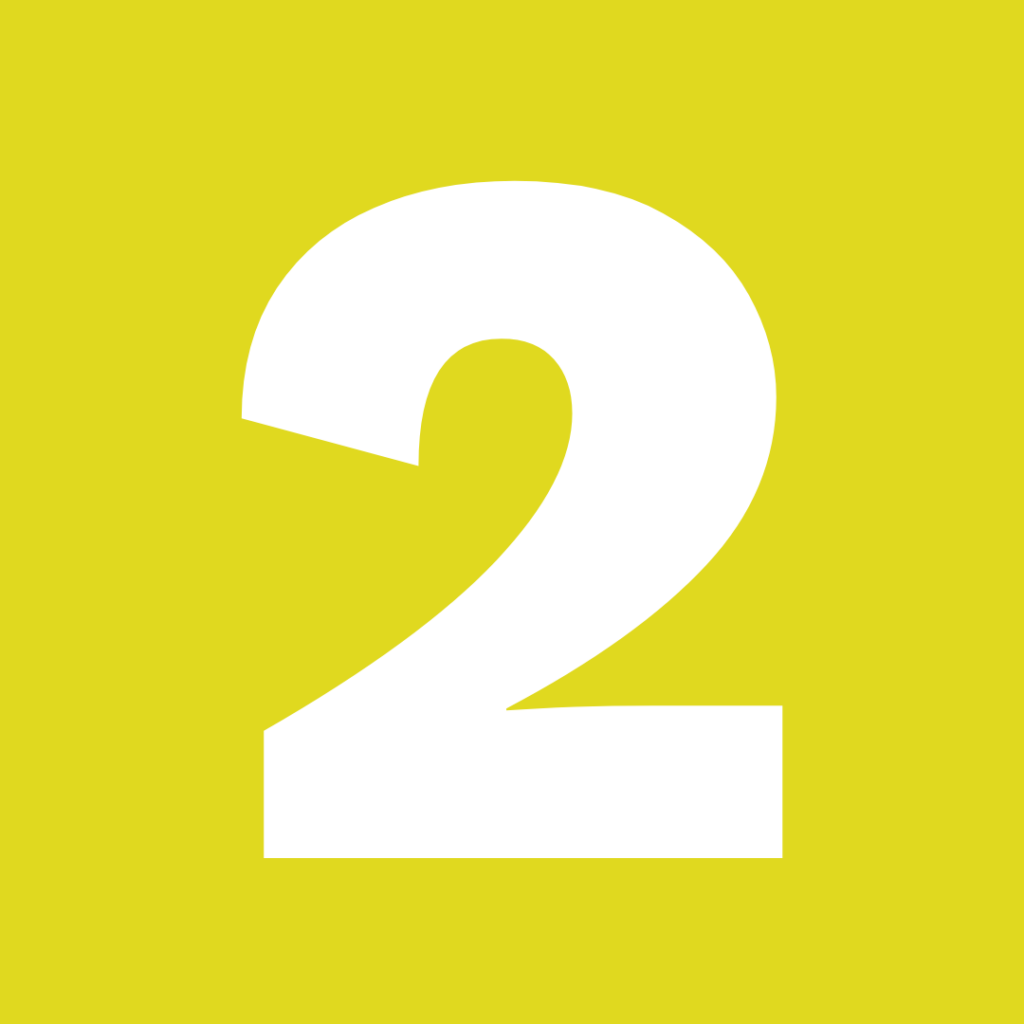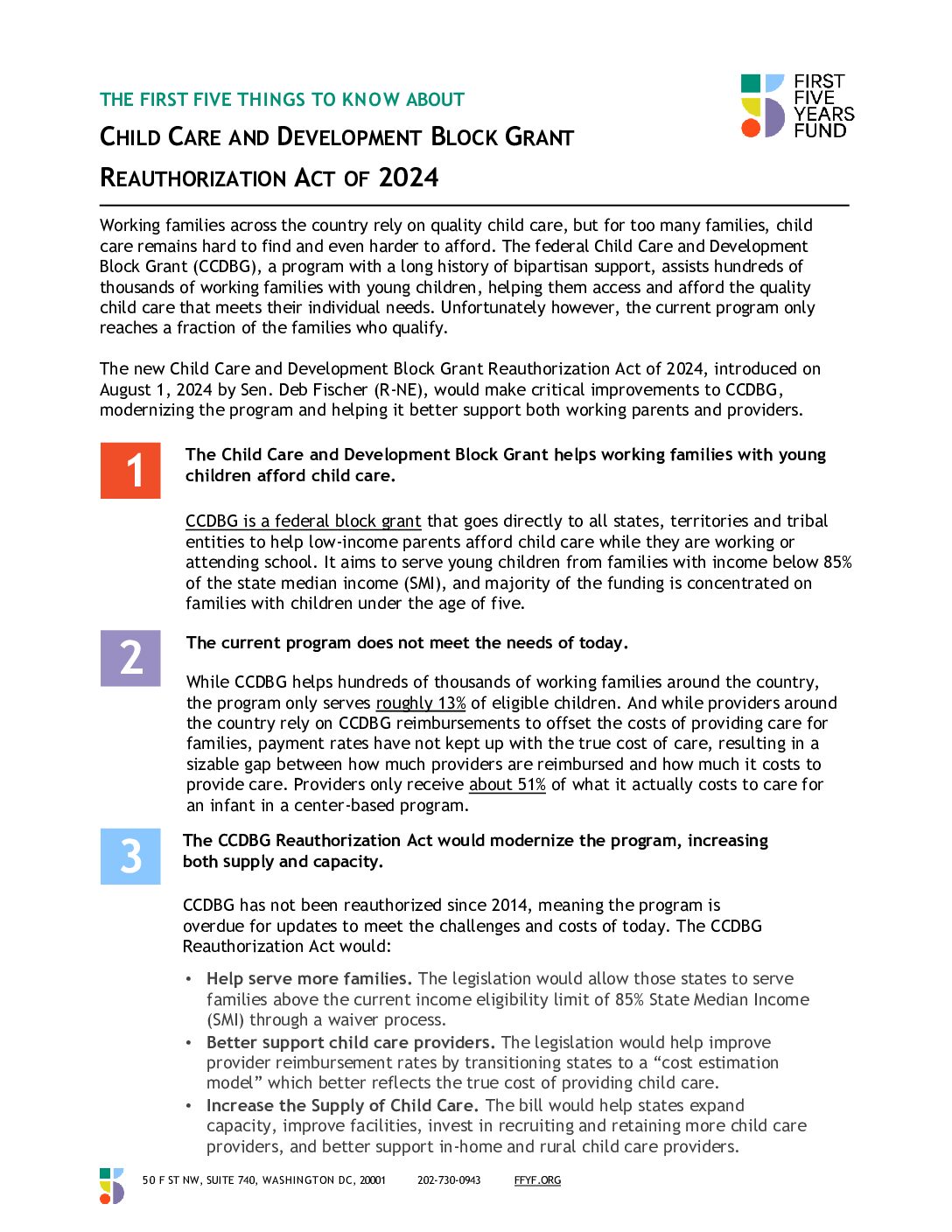The First Five Things to Know About: The Child Care and Development Block Grant Reauthorization Act of 2024

Working families across the country rely on quality child care, but for too many families, child care remains hard to find and even harder to afford. The federal Child Care and Development Block Grant (CCDBG), a program with a long history of bipartisan support, assists hundreds of thousands of working families with young children, helping them access and afford the quality child care that meets their individual needs. Unfortunately however, the current program only reaches a fraction of the families who qualify.
The new Child Care and Development Block Grant Reauthorization Act of 2024, introduced on August 1, 2024 by Sen. Deb Fischer (R-NE), would make critical improvements to CCDBG, modernizing the program and helping it better support both working parents and providers.

The Child Care and Development Block Grant helps working families with young children afford child care.
CCDBG is a federal block grant that goes directly to all states, territories and tribal entities to help low-income parents afford child care while they are working or attending school. It aims to serve young children from families with income below 85% of the state median income (SMI), and majority of the funding is concentrated on families with children under the age of five.

The current program does not meet the needs of today.
While CCDBG helps hundreds of thousands of working families around the country, the program only serves roughly 13% of eligible children. And while providers around the country rely on CCDBG reimbursements to offset the costs of providing care for families, payment rates have not kept up with the true cost of care, resulting in a sizable gap between how much providers are reimbursed and how much it costs to provide care. Providers only receive about 51% of what it actually costs to care for an infant in a center-based program.

The CCDBG Reauthorization Act would modernize the program, increasing both supply and capacity.
CCDBG has not been reauthorized since 2014, meaning the program is overdue for updates to meet the challenges and costs of today. The CCDBG Reauthorization Act would:
- Help serve more families. The legislation would allow those states to serve families above the current income eligibility limit of 85% State Median Income (SMI) through a waiver process.
- Better support child care providers. The legislation would help improve provider reimbursement rates by transitioning states to a “cost estimation model” which better reflects the true cost of providing child care.
- Increase the Supply of Child Care. The bill would help states expand capacity, improve facilities, invest in recruiting and retaining more child care providers, and better support in-home and rural child care providers.

The CCDBG Reauthorization Act fosters parental choice.
The CCDBG Reauthorization Act gives states the maximum flexibility in using the block grant across a variety of settings, also known as “mixed delivery.” This supports parental choice and creates efficiencies within a blended funding system for child care programs.

And voters strongly support CCDBG.
A 2024 poll from First Five Years Fund found that an overwhelming majority of voters support increasing federal funding to the states which allows them to expand their child care programs (CCDBG), including 74% of Republicans, 86% of Independents, and 96% of Democrats.
Bottom Line:
CCDBG is the foundational federal program that helps ensure working parents have access to the quality, affordable child care that best fits the needs of their family. The CCDBG Reauthorization Act of 2024 would make necessary updates to the program, allowing it to better serve working families in every district across the country.
Learn more:
Learn More: Senator Fischer’s CCDBG Reauthorization Act Press Release, CCDBG Overview, CCDBG State Fact Sheets, Voter Support for Child Care Policy
Subscribe to FFYF First Look
Every morning, FFYF reports on the latest child care & early learning news from across the country. Subscribe and take 5 minutes to know what's happening in early childhood education.




